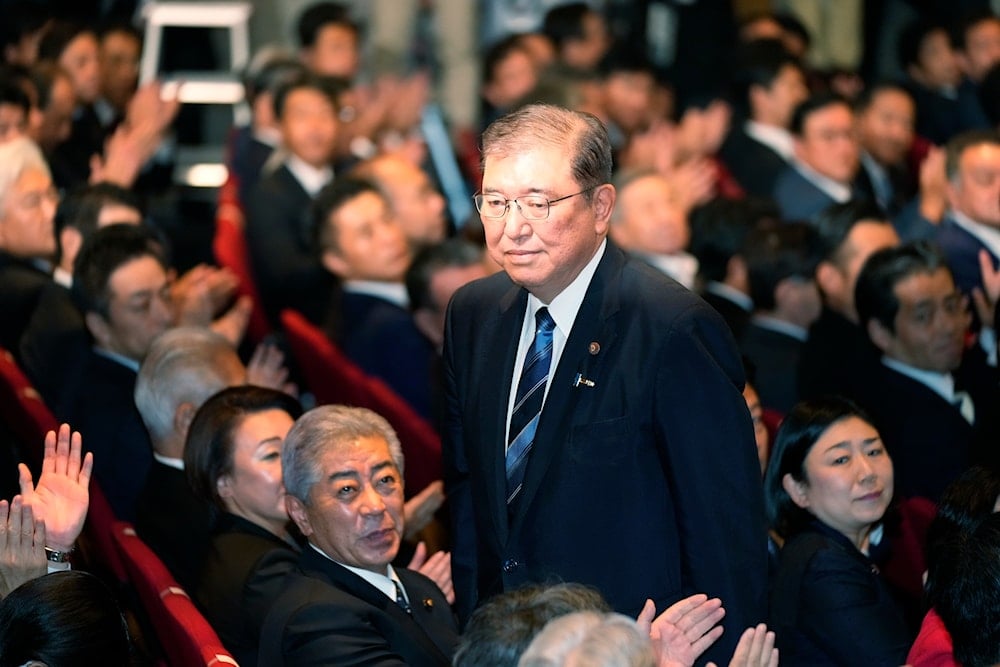Former Defense Minister Ishiba to be Japan's new PM
The former defense minister has won the leadership election of the Liberal Democratic Party, which holds a majority in parliament.
-

Shigeru Ishiba, center, acknowledges after he was elected as new head of Japan's ruling Liberal Democratic Party (LDP) during the party's leadership election on September 27, 2024, in Tokyo. (AP)
Former Defense Minister Shigeru Ishiba has been confirmed as Japan's next prime minister after winning the leadership vote of the ruling party on Friday, according to the official tally.
The 67-year-old train enthusiast defeated Sanae Takaichi, who would have been Japan's first female leader, by 215 votes to 194 in the runoff.
Upon announcing his victory at the Liberal Democratic Party (LDP) headquarters in Tokyo, Ishiba smiled, removed his glasses to wipe away tears, and bowed repeatedly while being congratulated by his colleagues.
"I will do my utmost to believe in the people, to speak the truth with courage and sincerity, and to make this country a safe and secure place where everyone can live with a smile on their face once again," he said in a short speech.
Ishiba had previously been a contender for the top position, notably in 2012 when he lost to nationalist Shinzo Abe, Japan's longest-serving leader, who was later assassinated.
As scandals heighten public dissatisfaction with the LDP, University of Tokyo politics professor Yu Uchiyama remarked before the vote that "the tide is in favor of Ishiba and his 'fair and square' approach."
Kishida steps down amid sinking polls
The new PM was elected after former PM Fumio Kishida announced that he would not run for re-election as party leader, signaling his intention to step down last month.
"In this (party) presidential election, it is necessary to show the people that the LDP is changing and the party is a new LDP," Kishida told reporters in Tokyo, stressing that "For this, transparent and open elections and free and vigorous debate are important. The most obvious first step to show that the LDP will change is for me to step aside."
Kishida, 67, who has served as prime minister since October 2021, has witnessed a steep decline in both his and his party's approval ratings due to rising prices that have strained Japanese incomes. In November, he introduced a 17 trillion yen ($100 billion at the time) stimulus package in an effort to alleviate the impact of inflation and salvage his leadership.

 2 Min Read
2 Min Read








